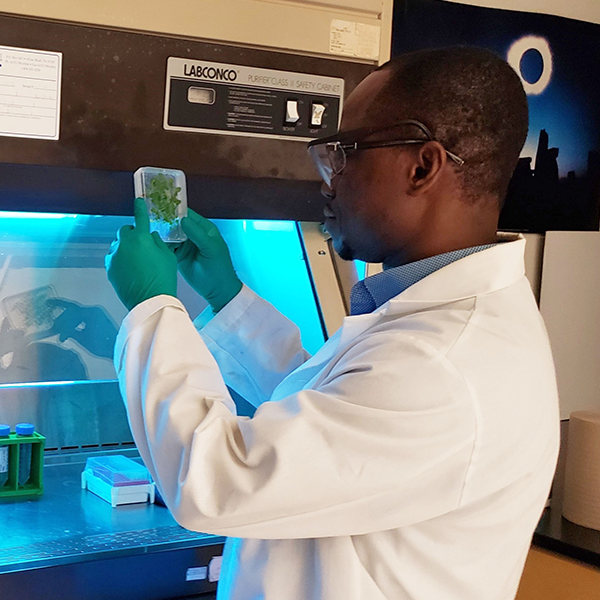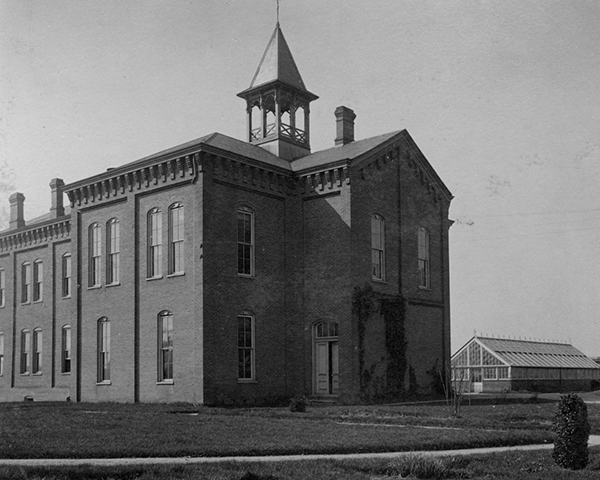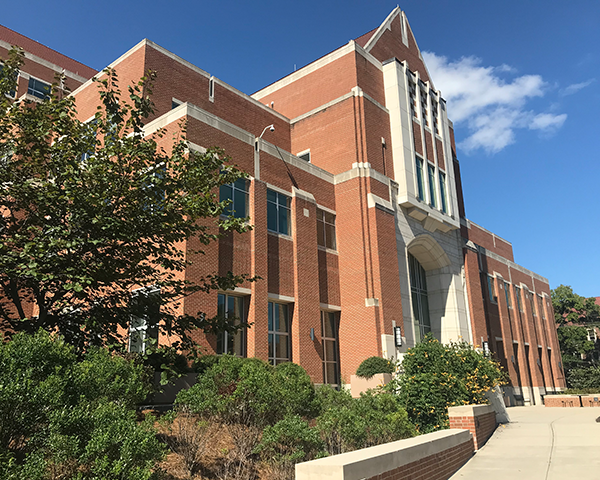Cutting Edge Fruit Fly Research
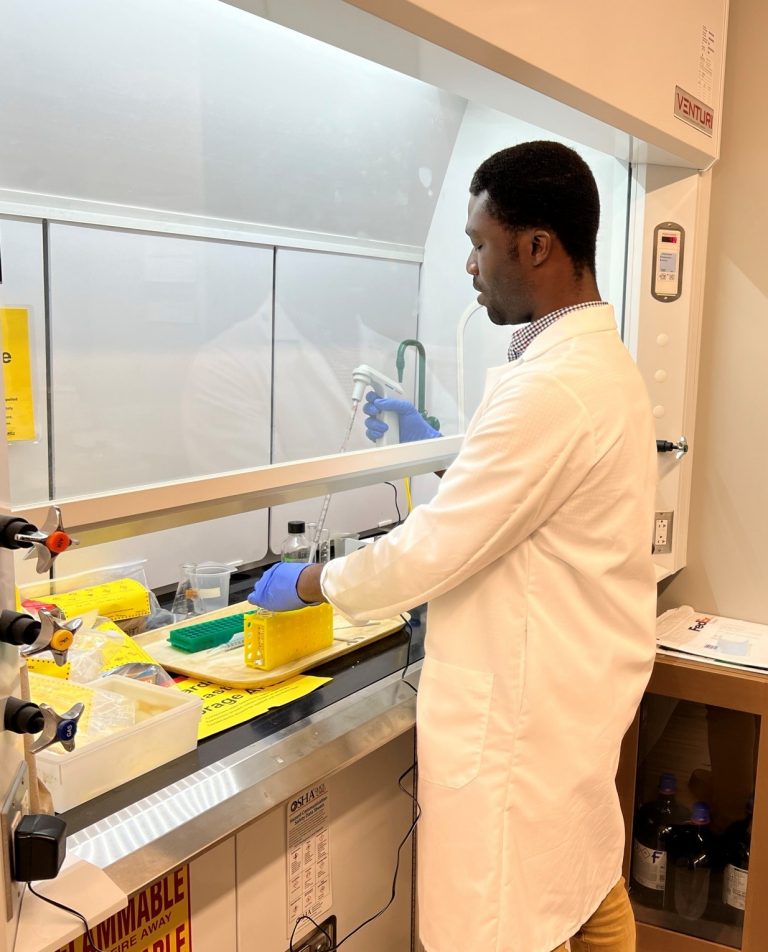
Bright Amankwaa credits his brother for inspiring his interest in science and education.
“I grew up in the eastern part of Ghana and I remember seeing my brother, Lawrence, regularly engrossed in books while he was pursuing a PhD in biochemistry. I always drew inspiration from him, and it is through his guidance I gained entry into the graduate school at the University of Tennessee.”
Before joining the BCMB department, Amankwaa worked as a medical laboratory scientist.
“I have a strong interest in understanding the molecular basis of genetic diseases after getting to know I carried the hemoglobin C trait. Hemoglobin C is one of the structural hemoglobin variants that lead to benign hemoglobinopathy. Against this backdrop, I studied medical laboratory science and chemical pathology for my first and second degrees respectively during which I investigated the genetics and biochemical basis of cardiometabolic diseases. From there, I worked with Synlab Ghana Limited in the hematology, microbiology, and clinical chemistry departments before joining the BCMB program.”
The BCMB program aligned with Amankwaa’s interest in gaining a basic understanding of molecular biology.
“I sought advice from mentors and friends and their insights about the BCMB department dovetailed with everything I wanted in a PhD program: diverse faculty who are carrying out cutting-edge genetics and molecular biology research and close ties with the internationally recognized Oak Ridge National Laboratory which provides prospects for collaborations.”
Amankwaa enrolled in the BCMB program in fall 2018 and after three rotations, he joined the Labrador lab, which studies how chromosome structure impacts cellular functions including gene expression and DNA damage.
“The BCMB department provides an opportunity for rotations in at least three different laboratories. I relished the experience of learning different levels of gene regulation in each of these labs with molecular biology toolkits. I was particularly fascinated by the Labrador lab’s focus on how chromatin organization modulates the eukaryotic genome function.”
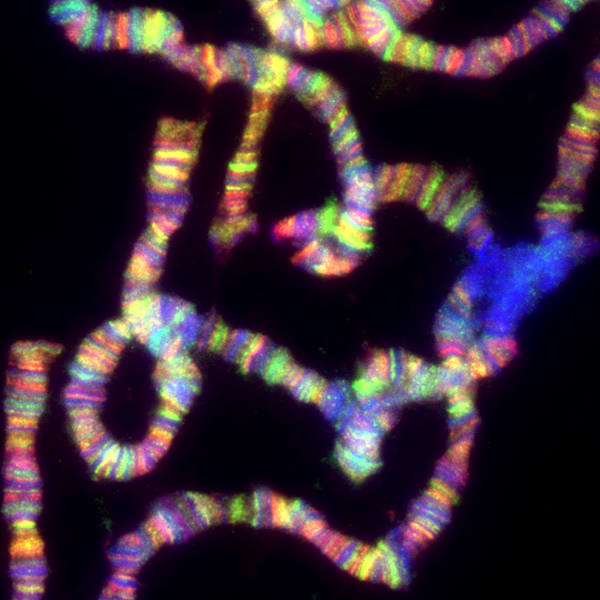
“In the Labrador lab, we use the fruit fly, Drosophila melanogaster, and human cell culture as model systems to investigate how specific genetic elements, called insulators, are recognized by their cognate proteins (architecture proteins) to change the eukaryote chromosome structure. Chromatin insulators are significant in gene functions and defects are implicated in several diseases including Beckwith-Wiedemann syndrome, Wilms’ Tumor, and T cell acute lymphoblastic leukemias.”
Outside of science, Amankwaa likes to listen to poetry and watch movies on Greek and African mythologies. He loves to write stories on the same topics and try to relate the flaws of characters like the gods to modern-day happenings in religion and politics.
“I see mythologies as imaginative fantasies from which civilizations are not especially far removed. I hope to someday get some of my stories adapted into movies.”
